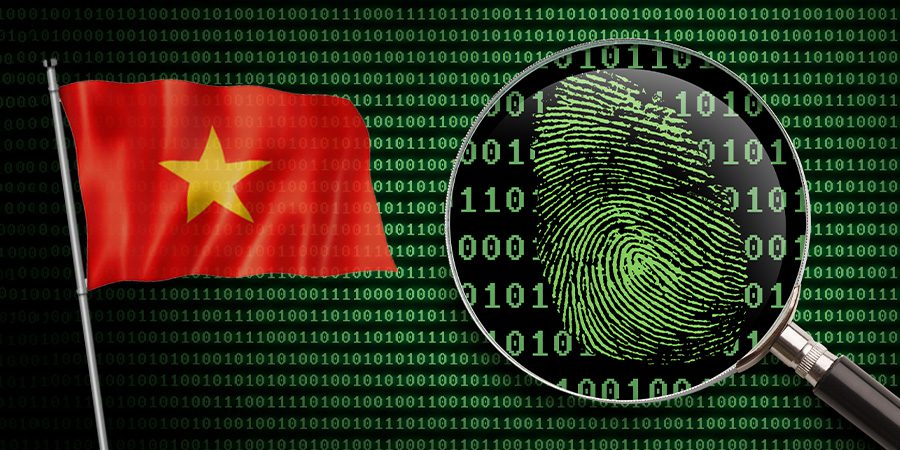In this article, we’ll explore Vietnam’s upcoming plan to require social media registration for users, including those on international platforms, as a means to curb criminal activities and online scams.
Key Takeaways:
- Vietnam plans to introduce mandatory social media registration for both local and foreign platforms.
- Deputy Minister Nguyen Thanh Lam announced that anonymous accounts on Facebook, TikTok, and YouTube will be targeted.
- Registration aims to reduce criminals’ access to social media and help track down lawbreakers.
- Details of the draft legislation for the registration process have yet to be revealed.
- Vietnam would join China in requiring social media registration, as both are single-party Communist states.
Expanding Registration Requirements Beyond SIM Cards
Vietnam is taking a bold step by extending its registration requirements from SIM cards to social media accounts.
The move is aimed at reducing the access criminals have to social media platforms.
Currently, verification of identities is mandatory for users of SIM cards, a measure implemented to cut down on spam text messages.
The Vietnamese government believes that the success of SIM registration has led some criminals to switch to over-the-top services for their illicit activities.
To counter this, Deputy Minister of Information and Communications Nguyen Thanh Lam has announced that Vietnam will introduce a new registration requirement for social media users. This will apply to both local and offshore services.
Vietnam’s Approach to Social Media Compared to China
Vietnam and China share similarities in their approaches to social media regulation, as both are single-party Communist states.
However, Vietnam is comparatively more open than China. International social networks like Facebook, TikTok, and YouTube are easily accessible in Vietnam, unlike in China.
Deputy Minister Lam has revealed that anonymous accounts on these platforms will be “challenged, blocked, and handled at different levels.”
The government has not yet disclosed how it plans to enforce registration for non-Vietnamese services and users from outside the country.
However, forthcoming draft legislation is expected to provide clarity on this matter.
Implications for Big Tech and Citizen Access to Services
The proposed requirement for universal social media registration could have significant implications for both Big Tech companies and citizens who rely on these services.
Vietnam’s growing population of 100 million makes it an attractive market for tech giants such as Facebook and TikTok.
However, these companies are known to resist sharing user information with governments, preferring to use the data for their own purposes.
It will be interesting to see how Big Tech reacts to the new registration requirements, as the Vietnamese government will need their cooperation for successful implementation.
Additionally, the government must tread cautiously to ensure that citizen access to essential services is not adversely affected by the registration process.
Addressing Online Scams and Criminal Activities
Vietnam’s move to require social media registration is primarily aimed at reining in online scams and criminal activities.
The measure, which is part of the Telecommunications Law Amendment set to be issued by the end of the year, will enable law enforcement agencies to track down offenders using social media platforms to break the law.
According to the state-run Voice of Vietnam (VOV) newspaper, there have been instances where authorities were able to identify social media account holders who violated the law but could not track them down due to the use of cross-border applications.
By making identity verification mandatory for all social media users, the Vietnamese government aims to close this loophole and crack down on criminals more effectively.
The new regulation will be applicable to both individual and organizational users on local and foreign platforms such as Facebook, TikTok, and YouTube.
However, not all providers currently offer identity verification in Vietnam. The details of the new regulation have not yet been revealed, and it remains to be seen how the country’s lawmakers will approve it.
In recent years, Vietnam has issued several regulations, including a cybersecurity law, to target foreign social media platforms in a bid to combat disinformation in news and compel foreign tech firms to establish representative offices in the country and store data locally.
Conclusion
The Vietnamese government’s decision to require registration of social media accounts, even on global platforms, marks a significant move in addressing criminal activities and online scams.
However, careful implementation of this measure is crucial to ensure that citizens’ access to essential services remains unaffected.
The upcoming draft legislation will play a critical role in clarifying the practicalities and challenges associated with enforcing this new regulation.
Furthermore, the response of Big Tech companies to these requirements will be a key factor in determining the success of this initiative.
As Vietnam navigates the complexities of regulating social media, it will be vital for the government to balance its efforts to curb criminal activities and protect user privacy, while fostering an environment that encourages innovation and growth in the digital space.
 Sections of this topic
Sections of this topic
















